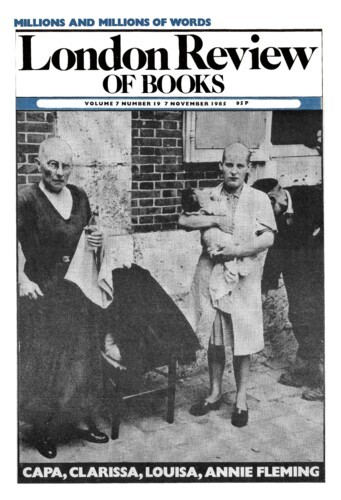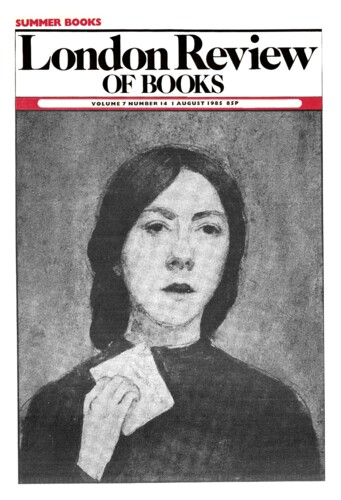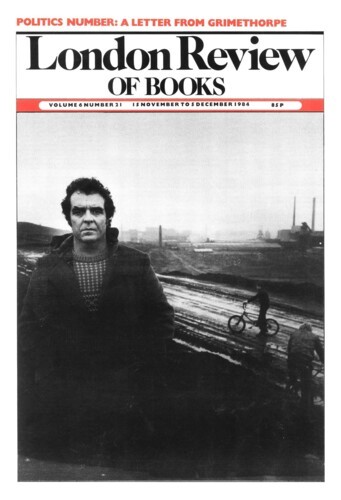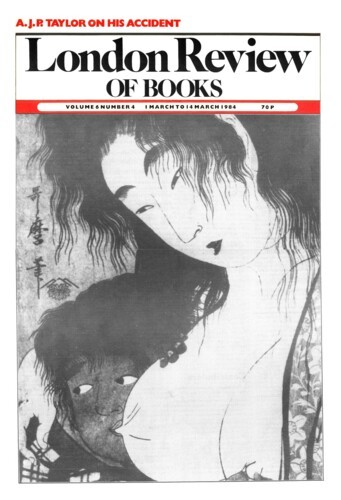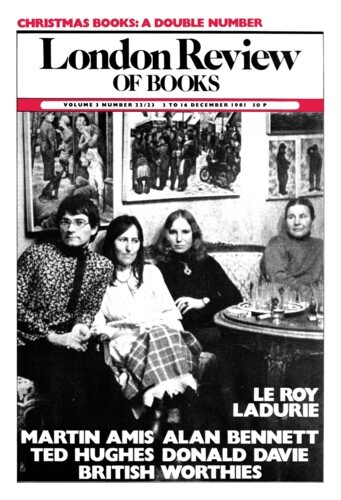Mrs Webb and Mrs Woolf
Michael Holroyd, 7 November 1985
When I signed the contract for my Life of Lytton Strachey, I was allowed by way of an advance on royalties the sum of 50 pounds. Though this reflected my own lack of status as a biographer, it was also, I think, some measurement of where Bloomsbury stood in the scheme of things. Twenty-five years ago, Strachey’s books were not in paperback and Virginia Woolf was not the feminist idol she has since become. The reputation of E.M. Forster was in decline. The paintings of Duncan Grant and Vanessa Bell were not privately collected and had been demoted to the cellars of many public galleries. The art criticism of Roger Fry and Clive Bell was no longer considered significant, and few people knew the name of Carrington. The best-known of the Bloomsburgians was probably Maynard Keynes – the man Bloomsbury had sent into the political world to represent their interests during the great changes – revolutions maybe – that were to take place in the 20th century. Nothing was known of his homosexuality, which was concealed in Roy Harrod’s authorised biography; and his literary abilities were not often celebrated. He was the property of economists – a brilliant crisis economist, as I think of him, which is one reason why we hear so much about him today.’
